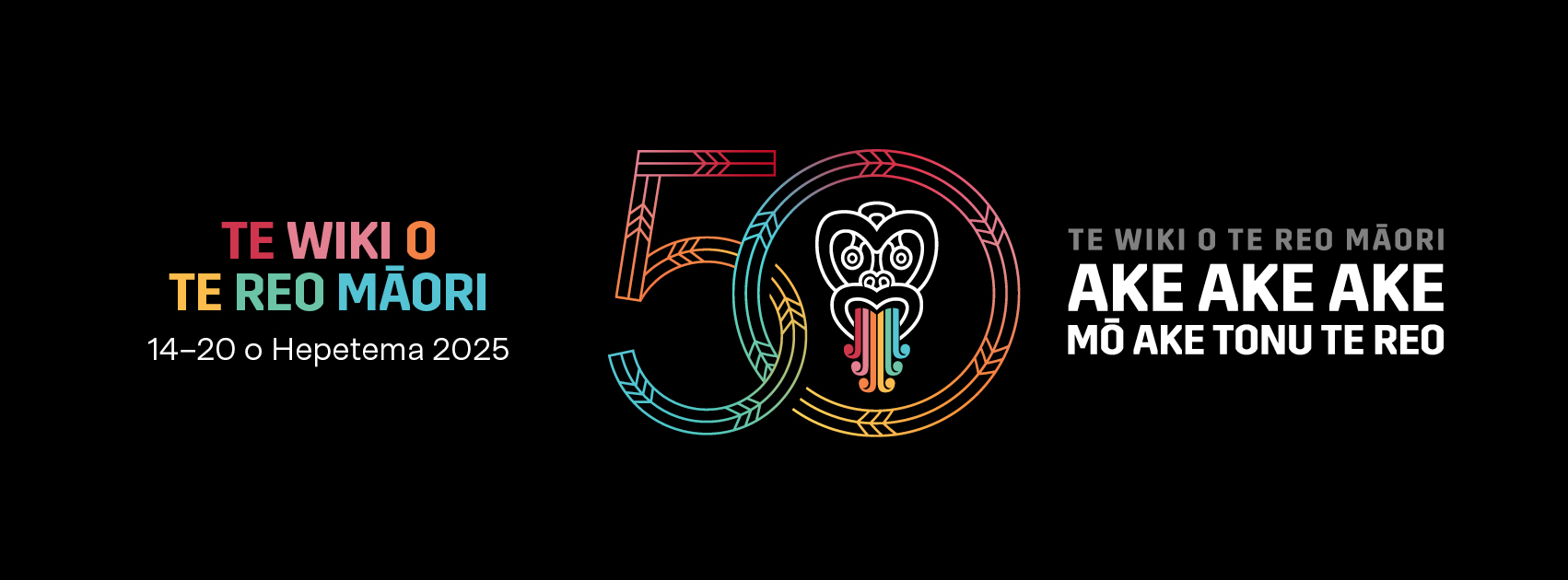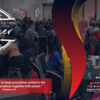14-20 September is the 50th official Te Wiki o Te Reo Māori (Māori Language Week). It’s a highly visible and celebrated event each year, and many churches participate. It also a time that prompts a range of questions for some non-Māori (Pākehā). As a pākehā who has lived in this land for 20 years, I wanted to offer this reflection – pākehā-ki-pākehā (non-Māori to non-Māori) – to my friends who have sincere questions relevant to this issue.
The Martian observations
Imagine, if you will, a team of Martian socio-linguists – documenting the history of language in this land. For centuries, they would observe one language dominating, despite infrequent visits from those speaking other languages. During roughly the second half of the 18th century, they would observe a second language being not only welcomed and learned by speakers of the first language, but quickly becoming dominant as the number of these migrants spiked.
Today, these Martians would observe many kinds of human gatherings in this land, most of which are exclusively conducted in the second language. Some of these meetings would have as few as 5-6 words spoken in the first language. Some would be 2% first language, and 98% second language. A very small number of human gatherings would be around 98% first language. You could even find some educational spaces 100% first language.
In addition, these Martians would observe third, fourth, fifth, and then many other languages being spoken here. Many of these language speakers would also learn the second language. Many of them would have their own gatherings, almost exclusively in their third, fourth or other language.
My experience of language in this land
I was not even born as of 1972 when the Māori Language Petition was presented, or 1975 when Māori Language Day started. I was raised in Missouri in the United States and had a limited understanding of the history of migration and language back home. We never thought about using, for example, an Osage Nation greeting at work or church. When I migrated to these lands in 2005, Māori TV had been on air about a year. The resurgence of Te Reo Māori was rising.
I didn’t know much at all about the story of the Treaty (Te Tiriti), the missionary influence on it, or the nuances of when, where, and by whom it might be appropriate to speak the Māori language. As my first years living here ticked by, I noticed a growing trend in
gatherings where people would start the meeting or their talk by speaking for a minute (or several minutes) in Te Reo Māori. Nobody had ever really explained to me why this was being done, and I don’t recall having any particularly strong feelings about it, other than being particularly impressed when a non-Māori person did this.
Studying theology gave me stronger reasons for appreciating different cultures. Still, I hadn’t thought much about those questions of who, why, or where with regard to speaking in Te Reo. Over the years, working at a church with Mandarin-speaking Chinese and Korean churches in the afternoon, I had picked up a few greetings in Māori, Mandarin and Korean. Nothing even vaguely resembling fluency. Possibly some tokenism. No doubt some showmanship and a sprinkle of ego. But people seemed to appreciate when I made the effort to use their greetings. It felt like I was trying to be friendly and appreciative of their culture. That was good enough for me.
As the years rolled on, I learned more and was keen to get ‘on the waka (canoe)’. I learned to cobble together my own pepeha (a tribal form of introducing yourself). Not having grown up in these lands, I didn’t have to un-train my neural pathways from being formed to pronounce Whangārei as ‘wong-err-ay’. I would regularly get compliments on my pronunciation. I had become an advocate for Te Reo Māori.
From 2019-2022, as part of my work with the Justice Conference, run by Tearfund, I was meeting, listening to, interviewing, and giving speaking slots to many leading Māori Christian leaders. I attended a profoundly helpful haerenga (journey) with Karuwhā, a ministry beautifully helping people understand the story of the Treaty from a Christian perspective. These learning contexts were a profound privilege. I learned, most of all, to try to put my own thinking on pause and not make assumptions about what Māori think or believe. I learned – at least a bit! – to listen.
The experience of Māori I’ve listened to
As I listened over cups of coffee, to speakers at conferences, on zoom calls, podcasts, interviews and articles. A clear picture emerged. The Martian data we imagined above is merely quantitative. For Māori, the qualitative feeling of the story is one marked by pain, loss, hope and determination.
Part of the rapid dominance of the English language was simple demographics and population shifts. But other times this was mixed with racial superiority and violent oppression. Loss of language was mixed in with loss of land and livelihoods. It’s not my story to tell, but it is part of the shared story of this land, which is important to understand.
Many of my Māori friends are frustrated when non-Māori complain about the use of Te Reo Māori. They don’t see English as a ‘neutral’ and ‘normal’ language. They long for their language and culture to survive and flourish. A big light-bulb was switched on for
me when my good friend TeRata told me that the Māori language will remain an endangered language – until spoken in a certain percentage of Māori households. Many of my Māori friends find it a bit ironic when some say Māori language is being ‘rammed down our throats’, given that in some places and times in our history it was banned.
The experience of those freshly arriving
I also listen to friends from other cultures, who have a range of interesting perspectives on these matters. My Samoan, Tongan, Fijian and other Pasifika friends are almost always keen to support the resurgence of the Māori language but can sometimes feel their own efforts to preserve and speak their languages are at times overshadowed by what often seems like a greater interest in Te Reo Māori.
And then there are people arriving each week from places like Russia, Qatar, South Korea, Peru, China, Scotland and many others. Through hard work and study, many of these migrants are already fluent or at least conversational in English. Many others go to ESOL (English Speakers of Other Languages) classes. Some may have learned much of the Treaty and language story of this land. Others are just starting the journey.
NZSL is also our third official language here. Churches – particularly medium to smaller ones – often find themselves uncertain or under-prepared to engage with the deaf community.
Two biblical convictions in tension
Having those perspectives in mind hopefully helps us when we return to the tricky questions of how to speak, pray, plan, worship and fellowship together in this land. It helps to remember that some people are just starting this journey and their questions are not always born of racism. And yes, it helps to know that not all of our questions are helpful to those directly affected by them.
When it comes to worship services, I’ve had strong interest in leading, planning and studying it. On the topic of language in gathered worship, I find that there are two biblical convictions that are often in tension with one another:
1. The Gospel is for every nation, culture, and language. The Bible is a cross-cultural document. God’s people are drawn together from every tongue tribe and nation. While at one level it’s perfectly acceptable to worship in language-specific groups, it’s a great gospel instinct to want our worship gatherings to display the cross-cultural reconciliation that the Gospel brings.
2. Gathered worship should be intelligible for all. Whatever one makes of the gift of tongues, there seems to be a principle in 1 Corinthians 14 that worship must be orderly and other languages translated so that people not only praying in spirit (14:2, 14-15) but with the understanding of their minds (14:15, 19). My own personal view (shared by many of my Māori friends) is that translating Māori
prayers or readings as much as possible is a great way for people to learn or at least join in good conscience with the ‘Amen’ (Āmine). It’s helpful when people understand that often used waiata (songs) like He Honore come straight from Luke’s Gospel.
Going forward…
What do we make of all this? I offer no commandments from on high. I’m just a guy trying to love and learn in this land. Each one must follow their own conscience. I’ve shared my experience, reflected on what I understand to be the experience of others. Here are some things I want to try to do this Te Wiki o Te Reo Māori – and every week.
· I want to respect, honour and value other languages. I will try not to be annoyed when people are speaking in a language I don’t understand. When I hear someone’s so-called ‘broken English’ I will remind myself that they are conversational in at least one more language than I am!
· I want to be patient with others. I will try to accept others who see things differently. I will try to honour their conscience and not accuse them of racism for merely having questions.
· I want to try without showing off. I will try to do the labour of love of working at my pronunciation (roll those r’s!) and learn some new kupu (words).
· I want to tautoko (support) my Māori friends who are working hard for the flourishing of their people and language. I will lean into initiatives like Te Wiki o Te Reo Māori, and cheer on Christian Māori language schools like Te Wānanga Ihorangi.









0 Comments